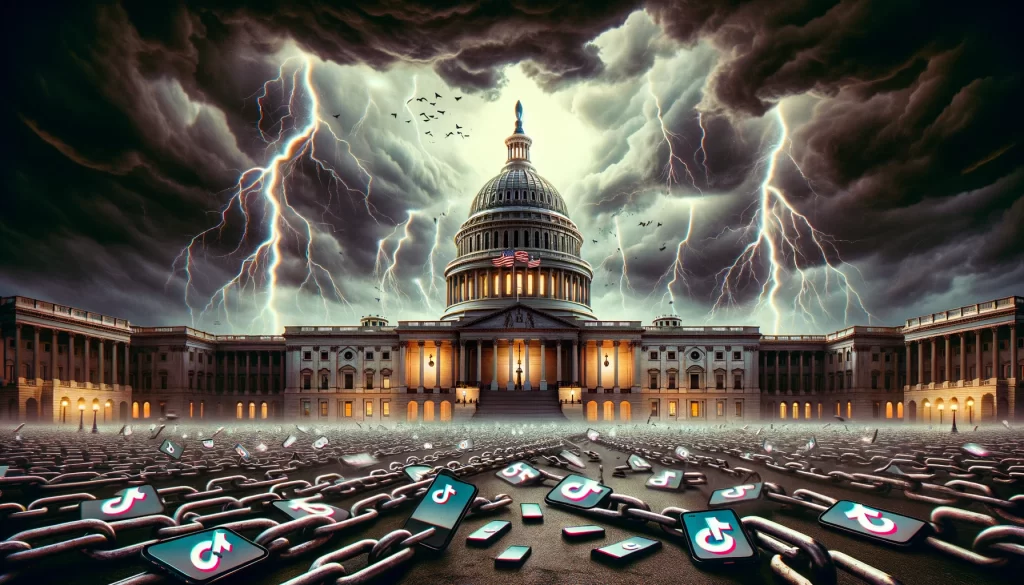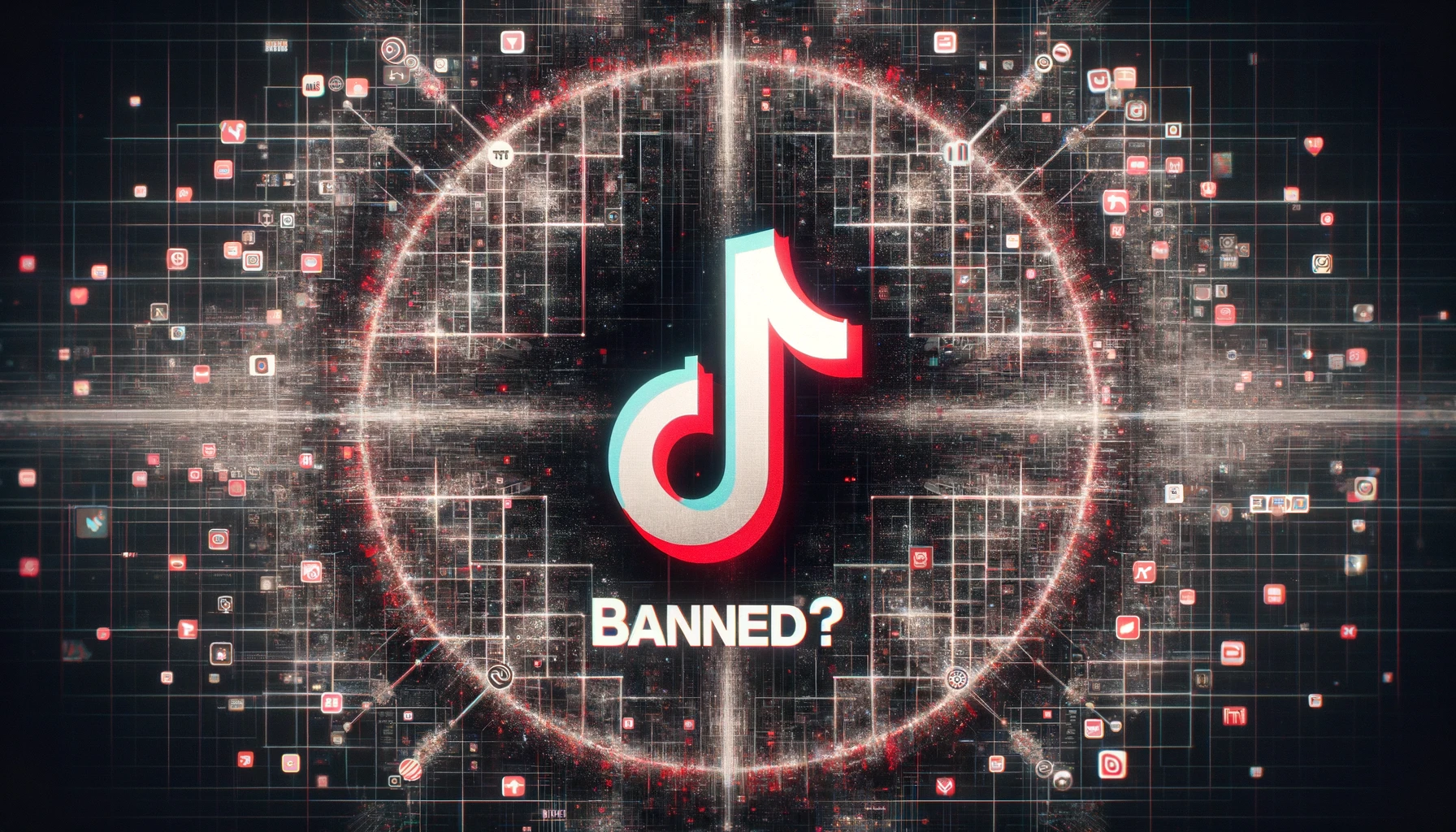The House of Representatives overwhelmingly voted to pass a bill that directly impacts TikTok, a popular social media app beloved by millions. The bill, which saw a vote of 352-65 in favor, is aimed at ByteDance, the parent company of TikTok. It mandates that ByteDance must sell TikTok to a new owner or face the consequence of having TikTok banned on all U.S. devices. This move has sparked a wide range of reactions and brings up questions about privacy, free speech, and national security.
While the bill has made it through the House, its future in the Senate remains uncertain. Some senators have expressed the desire for more discussions and hearings on the matter before making a decision.
Rep. Mike Gallagher, a key figure behind this bill and the chair of the House Select Committee on China, insists that this action is not exactly a ban on TikTok. According to Gallagher, the goal is to ensure that TikTok can continue to operate and even improve, as long as it’s not under ByteDance’s ownership. The concern is with the app’s ties to ByteDance and potential implications for national security and user privacy.
Despite these assurances, if the bill becomes law, it effectively means TikTok would be banned in the U.S., as both ByteDance and China have previously shown no interest in selling the app. This situation has led TikTok to argue that banning the app would infringe on the free speech rights of millions of Americans who use the platform for expression and connection.
National security concerns are at the heart of the debate. Gallagher, among others, points to assessments from intelligence and national security agencies that suggest TikTok poses a risk to user privacy, has been used to target journalists, and could interfere in elections. These concerns were highlighted in a classified briefing to all House members and in public testimony by FBI Director Christopher Wray, who warned of the potential for the Chinese government to control software on millions of devices through TikTok.

The bill’s advancement was met with a significant lobbying effort by TikTok, which mobilized users to contact their Congress members. Gallagher cited this as evidence of the platform’s potential for manipulation.
Named the “Protecting Americans from Foreign Adversary Controlled Applications Act,” the bill seeks to block ByteDance-controlled applications, including TikTok, unless the app is sold. It also proposes a framework for dealing with future threats from foreign-owned apps and allows users to transfer their data to other platforms.
Critics of the bill, including the youngest member of Congress, Rep. Maxwell Frost, argue that it infringes on First Amendment rights and could have negative economic impacts, especially on small businesses and content creators who rely on TikTok.
The American Civil Liberties Union has labeled the bill as censorship, emphasizing the threat it poses to free expression. Despite these criticisms, supporters of the bill, like Illinois Democrat Raja Krishnamoorthi, argue that national security concerns outweigh these issues. The debate around TikTok’s data privacy measures, specifically the “Project Texas” initiative, continues, with some lawmakers skeptical of the company’s claims to protect user data.
As the bill heads to the Senate, its future remains uncertain. TikTok is preparing to counter the bill’s progress, and the discussion extends beyond the legislative sphere into the realm of presidential politics. Former President Donald Trump, who previously aimed to ban TikTok, now opposes the bill, fearing it might bolster competitors he views unfavorably now, such as Facebook. Meanwhile, President Biden, whose campaign actively uses TikTok, has signaled willingness to sign the bill into law, setting the stage for a potential legal showdown over free speech rights.
This article is based on the following article:
https://www.npr.org/2024/03/13/1237501725/house-vote-tiktok-ban

Background Information
Understanding these terms and concepts will help the reader grasp the complexities of the situation regarding TikTok, the concerns raised by lawmakers, and the implications of the proposed bill on various stakeholders, including users, the company, and U.S. national security.
ByteDance and TikTok
- ByteDance: A global technology company headquartered in Beijing, China. It owns several social media platforms, with TikTok being the most famous outside of China.
- TikTok: A social media app that allows users to create, share, and discover short music and video clips. It’s known for its viral dances, challenges, and a wide variety of user-generated content.
The U.S. House of Representatives and Senate
- U.S. House of Representatives: One of the two chambers of the United States Congress, the federal legislative body of the United States. The House is made up of representatives from each state, with the number based on the state’s population.
- Senate: The other chamber of Congress, where each state, regardless of its size, is represented by two senators. The Senate plays a crucial role in the legislative process, including the ratification of treaties and the confirmation of presidential appointments.
National Security and Privacy Concerns
- National Security: Refers to the safety and defense of a country’s citizens and institutions against threats. In the context of TikTok, concerns revolve around the potential for foreign interference or espionage through the app.
- Privacy Concerns: Fears about how personal information collected by apps like TikTok is used and who can access it. There’s worry that data could be misused or handed over to foreign governments.
Legislation and Government Action
- Bipartisan Bill: A proposed law that is supported by members of two different political parties. In this case, both Democrats and Republicans support the bill concerning TikTok.
- Ban: To officially or legally prohibit something. A TikTok ban would mean the app could not be used or downloaded in the United States.
Free Speech and Censorship
- First Amendment: Part of the U.S. Constitution that protects freedoms concerning religion, expression, assembly, and the right to petition. It guarantees the freedom of speech and expression, including, to some extent, digital platforms.
- Censorship: The suppression of speech, public communication, or other information. Critics of the TikTok bill argue that banning the app would be a form of censorship.
The Role of Congress and the President
- Congress: The legislative branch of the United States government, responsible for making laws. It consists of two chambers: the House of Representatives and the Senate.
- President’s Role: The President has the power to sign legislation into law or veto it, sending it back to Congress for further consideration.

Suggested Debate/Essay Questions
- Does the Potential Ban on TikTok Violate First Amendment Rights?
- Should We Consider Any Kind of Foreign Ownership in US Tech Companies as National Security Threats Now?
Please subscribe to Insight Fortnight, our biweekly newsletter!
